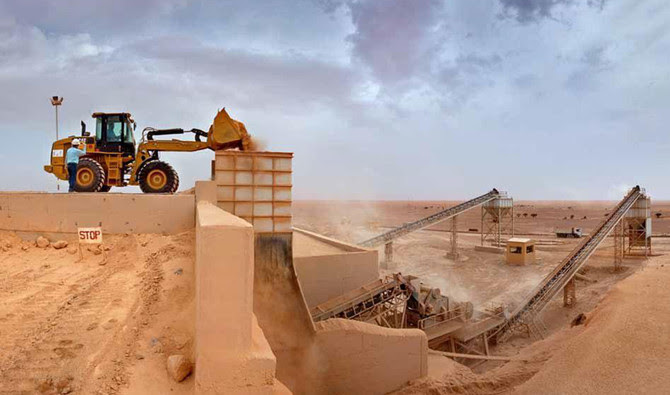Arab News
Richard Wachman
Phosphate rock producers are integrating in order to add value and meet the demands of Asian customers.
The fertilizer sector is also growing domestically, with Egypt consuming 14.3 million tons of nitrogenous and phosphate fertilizers per year.
Cairo is upping its game in the global phosphates market by funding a new multimillion-dollar phosphate industrial zone in Aswan, as well as expanding Safaga Port on the Red Sea, a major hub for agribusiness exports to India.
Phosphates and potash are part of a group of fertilizers that boost crop nutrition, and increase the yield from soil used to grow food. A report in Egypt Today said that since 2015, Egypt’s Industrial Development Authority had approved about 10 new projects in the field of phosphate fertilizers, with two already in production.
Phosphate rock producers are integrating in order to add value and meet the demands of Asian customers who find it more cost-efficient to buy intermediate or finished products since the price of phosphate rock has more than doubled since 2006.
That makes it harder for Asian middlemen to make money when they sell the raw material up the supply chain. It also means more manufacturing opportunities for Egyptian phosphate producers and suppliers, the prime targets of the new phosphate industrial zone in Aswan.
The fertilizer sector is also growing domestically, with Egypt consuming 14.3 million tons of nitrogenous and phosphate fertilizers per year, according to the annual report of the Chamber of Chemical Industries (CCI), affiliated with the Federation of Egyptian Industries. Egypt could achieve self-sufficiency before too long, as well as bolster exports, the CCI said. The international phosphate landscape is changing as US production declines and American mines become depleted.
The US has recently been an importer of phosphate rock, which means a bigger role for non-US producers such as Egypt. Asian customers can buy cheaper from North Africa as it is closer, putting the US at a disadvantage, and this spurs investment in the region. Phosphate production was slowing in China, but growing strongly in places such as Morocco, Jordan, Saudi Arabia and Egypt, according to a US Geological Survey report last year.
OCP Group of Morocco is the largest phosphate producer in the world. Morocco has the biggest phosphate rock reserve base in the world, accounting for about 75 percent of worldwide estimates, according to the report.




